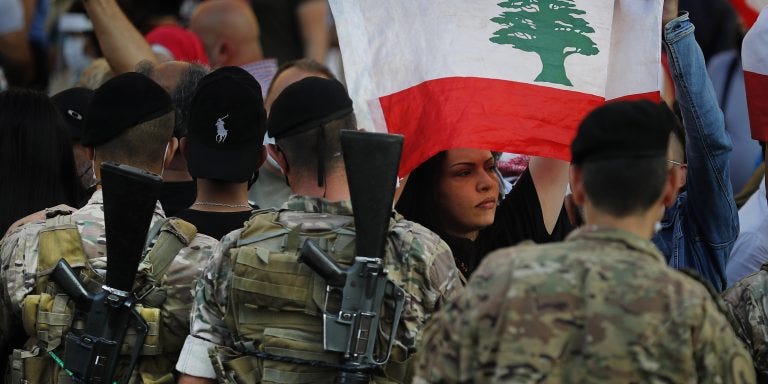For a Ceasefire to Work, Lebanon Needs Serious Help
The world has called on Lebanon's military to maintain the latest truce between Israel and Hezbollah. It will need a lot of help if it is to rise to the occasion.
Lebanon’s military remains on the edge of crisis. Image source
On November 27, the United States and France brokered a ceasefire agreement between Israel and Hezbollah in southern Lebanon. At its crux lay the future of southern Lebanon, from which Hezbollah has agreed to withdraw north of the Litani River, making way for the Lebanese armed forces to occupy the troubled border region between the two countries. However, both the Lebanese and Israeli governments have already blamed each other for violating the agreement, with Beirut noting Israel's ongoing operations in Gaza and Israel firing upon what it calls 'suspects' in the southern zone. Israeli Prime Minister Benjamin Netanyahu has vowed to respond to all truce violations with military force, stating, "The war is not over until we realize all of its goals, including the return of residents of the north safely home."
With the truce already on shaky ground, its future viability depends on a robust Lebanese military to occupy the country’s south. However, with Lebanon continuing to reel from a catastrophic economic and political crisis that began years before Israel's October invasion, the country's military has fallen upon hard times. Before the 2019 crisis, the average enlisted Lebanese soldier earned a monthly salary of $800; now, that figure has fallen to little over $100, with even high-ranking officers earning around just $250. Things have become so bad for the Lebanese government that Washington rerouted $72 million in aid to Lebanon to keep these paltry salaries flowing. Qatar donated another $20 million to this end last July. However, the Lebanese military and state will require much more to maintain any semblance of stability in the future.




